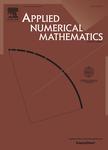版权所有:内蒙古大学图书馆 技术提供:维普资讯• 智图
内蒙古自治区呼和浩特市赛罕区大学西街235号 邮编: 010021

作者机构:Amirkabir Univ Technol Tehran Polytech Fac Math & Comp Sci Dept Appl Math 424 Hafez Ave Tehran 15914 Iran
出 版 物:《APPLIED NUMERICAL MATHEMATICS》 (Appl Numer Math)
年 卷 期:2025年第212卷
页 面:29-59页
核心收录:
学科分类:07[理学] 070104[理学-应用数学] 0701[理学-数学]
主 题:Gradient descent method Dynamical systems Momentum technique Control theory Discrete-time antilinear systems Time-varying linear system Coupled matrix equation Parameter-free method Iterative method Hierarchical identification principle
摘 要:This paper explores advanced gradient descent-based parameter-free methods for solving coupled matrix equations and examines their applications in dynamical systems. We focus on the coupled matrix equations { AX+YB=C, DX+YE=F, where A, D E ORx, B, E E ORx, C, F E OR x are given matrices, and X, Y E OR x are the unknown matrices to be determined. We propose a novel gradient descent-based approach with parameter-free, enhancing convergence through an accelerated technique related to momentum methods. A comprehensive analysis of the convergence and characteristics of these methods is provided. Our convergence analysis demonstrates that if the spectrum of a block matrix constructed from the matrices A, B, D, and E is confined within a horizontal ellipse in the complex plane, centered at (0,0) with a major axis length of 3 and a minor axis length of 1, then the accelerated momentum method will converge to the exact solution of the discussed model. The numerical results indicate that proposed methods significantly improve efficiency, showing faster convergence and reduced computational time compared to traditional approaches. Additionally, we apply these methods to linear dynamic systems, demonstrating their effectiveness in real-world scenarios.